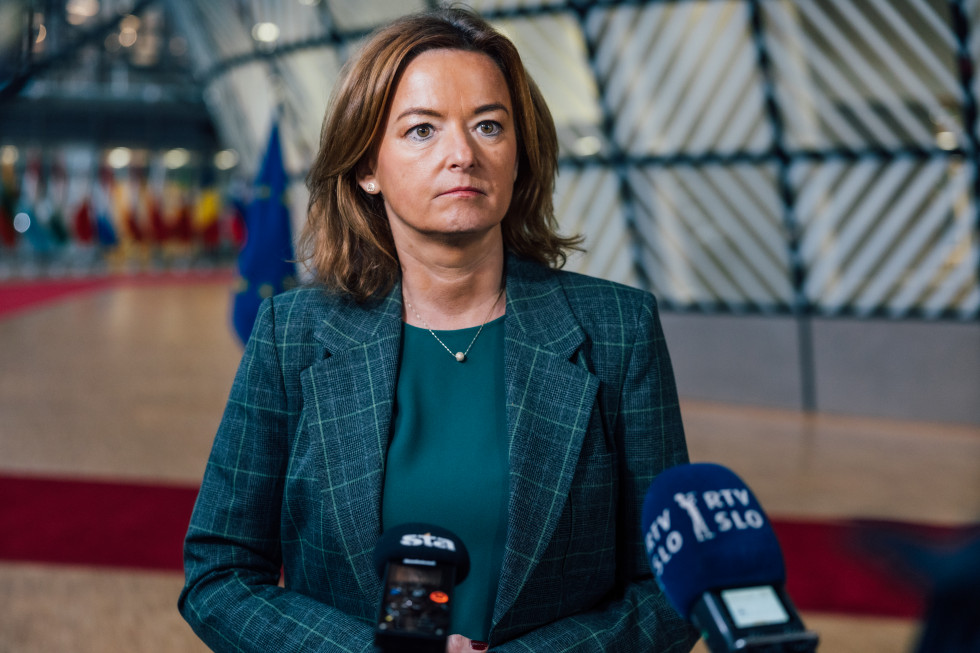Minister Fajon stresses the importance of a sustainable ceasefire in Gaza at the EU Foreign Ministers meeting

Minister Tanja Fajon | Author Ministrstvo za zunanje in evropske zadeve/Nik Jevšek
During the debate on the situation in the Middle East, Minister Fajon reiterated her call for an immediate ceasefire, stressing that “an Israeli military ground operation in Rafah would only further aggravate the already catastrophic humanitarian situation in Gaza. Any forcible displacement of the Palestinian population from Gaza would constitute a grave violation of international humanitarian law. Such an operation would also further destabilise the situation in the region. We must do everything in our power, in cooperation with the US and our partners in the region, to prevent Israel from going down this road. The EU must speak with one voice on the possible consequences of such an action. Humanitarian support for the United Nations Relief and Works Agency for Palestine Refugees in Gaza is essential to prevent a major crisis.”
The Foreign Ministers also discussed additional sanctions against individuals associated with Hamas and possible sanctions against violent Israeli settlers in the West Bank. “The actions of extremist settlers threaten the prospect of a two-state solution and increase the popularity of Hamas in the West Bank, thereby endangering the security and stability of both Israelis and Palestinians,” added Minister Fajon.
She supported the independent inquiry led by former French Minister Colonna, which aims to restore donor confidence and continued humanitarian aid to UNRWA in Gaza.
The Ministers met with the UN Senior Humanitarian and Reconstruction Coordinator for Gaza, Sigrid Kaag. Minister Fajon thanked her for sharing her insights and expressed her continued support for the implementation of the mandate entrusted to the Coordinator by the United Nations Security Council (UNSC). Ms Kaag presented the humanitarian needs to the Ministers and appealed for political and material support.
The Ministers were joined via conference call by the Minister of Foreign Affairs of Ukraine, Mr Dmitry Kuleba, who presented the current developments in and needs of Ukraine. Minister Fajon stressed that Slovenia will continue to assist Ukraine as long as necessary. She also recalled the principle of accountability and called for the signing of the Ljubljana-The Hague Convention as an important step in the fight against impunity and the search for justice for the victims of the most serious international crimes.
The Ministers were also addressed by Yulia Navalnaya, the wife of the late Alexei Navalny, who presented the efforts of Russian civil society for a different, democratic Russia. In the wake of Navalny's death, which shocked the world at the end of last week, a joint statement of the 27 EU Member States was published calling, among other things, for the release of political prisoners in Russia.
The Ministers meeting was preceded by an informal meeting with the Director General of the International Atomic Energy Agency (IAEA), Rafael Grossi, to discuss nuclear safety and the security of nuclear power plants in Ukraine.
The meeting continued with a discussion on the EU's increased engagement in the Sahel, aimed at reviewing the new realities resulting from the deteriorating political, security, social, economic and humanitarian situation, with threats spilling over into the entire region.
